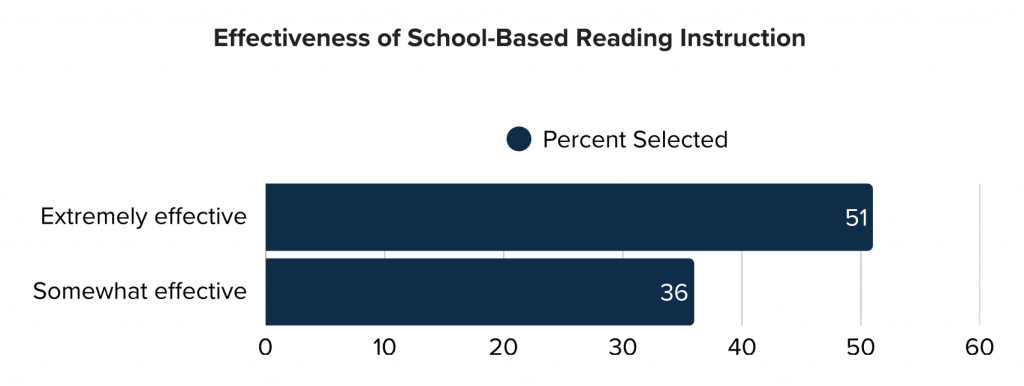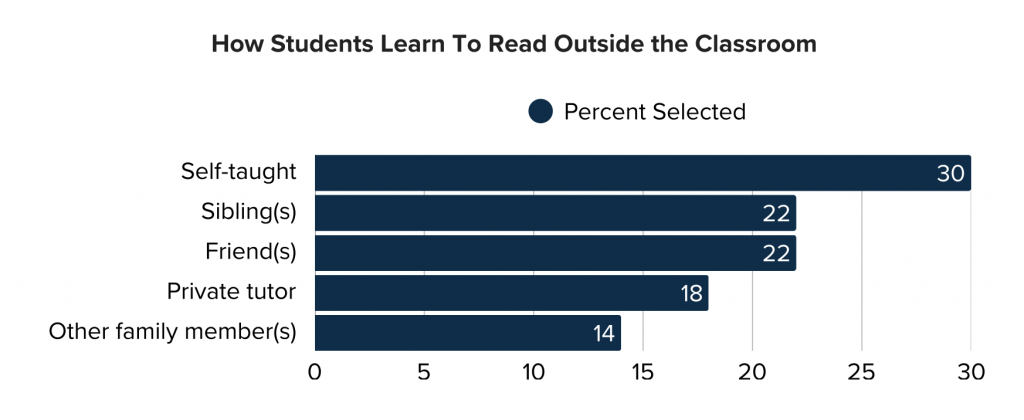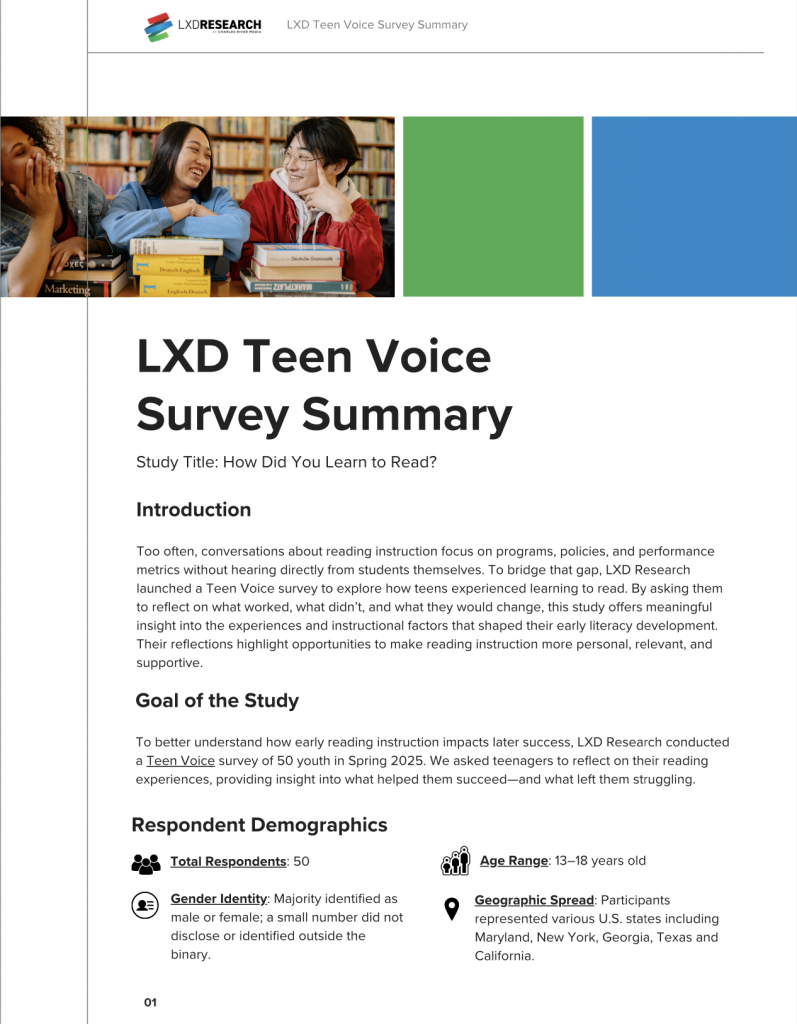At LXD Research, we know that to truly understand what works in reading instruction, we need to hear directly from students themselves. That’s why we recently conducted our Teen Voice Survey, asking 50 teenagers across the U.S. to reflect on their experiences learning to read. Their responses offer valuable insight into the emotional landscape of early literacy and point to opportunities to make reading instruction more engaging, supportive, and responsive to learner needs.
Who were the teens surveyed?
Our survey respondents, ranging in age from 13 to 18, represented a diversity of backgrounds and reading experiences. About half identified as male, half as female, with a small number not disclosing gender or identifying outside the binary. They hailed from states spanning Maryland to California, providing a wide lens into reading instruction across the nation.
What did we learn from the teens about their reading experience?
First, emotions matter. When asked to name feelings associated with learning to read, students often cited positive emotions like joy, pride, and curiosity. But for those who found their instruction less effective, frustration and boredom emerged as common themes. This emotional context underscores the importance of fostering engagement and confidence for young readers.
In terms of the perceived effectiveness of their school-based reading instruction, results were mixed. While 51% said their school taught reading “extremely effectively,” 36% said only “somewhat effectively,” and a small portion reported ineffective instruction. This suggests that while many schools are succeeding, others struggle to meet the needs of all learners.

Digging deeper into the supports students received, we found that differentiation is key. Two-thirds experienced regular classroom reading instruction, while only a third had access to tutoring or small groups. Some relied on summer programs or online tools, but several noted receiving no support beyond the classroom. With learners bringing such diverse needs, building in differentiation is critical.
Who taught these teens to read?
Students also learned from a variety of sources outside school. Thirty percent were taught by siblings, 22% by friends or other family members. A significant portion, 18%, considered themselves self-taught to some degree. The fact that 12% had no outside support further emphasizes the importance of providing robust in-school instruction.
Perhaps most illuminating were students’ ideas for change. They called for more engaging, relevant reading materials that make literacy feel like discovery, not a chore. They wanted support with skills like pronunciation, but through individualized approaches, not one-size-fits-all. Many wished for less pressure and testing in favor of choice and exploration. In short, they’re asking for instruction that is both more personalized and more empowering.

Turning insights about teens into actions for today’s striving readers.
For us at LXD Research, these insights are a powerful call to action. They highlight the need to craft literacy experiences that don’t just teach skills, but foster identity and agency. Whether in schools, tutoring programs, or instructional design, we have an opportunity to elevate student voice and build more responsive, engaging approaches to reading.
So let’s take these teen reflections as an invitation. How might we create literacy-rich environments that honor emotion and autonomy? What would it look like to provide high-quality differentiated support to all readers? How can we make reading feel less like a subject and more like a gateway to purpose and possibility?

At LXD, we’re committed to pursuing these questions through continued research and partnership with educators. Because when we listen to students’ stories, we gain not just data, but wisdom to light the path forward.
If you’re an educator, curriculum designer, or literacy advocate, we encourage you to reflect on these findings and consider how they might inform your work. Together, let’s use evidence to build a future where every student has the instruction, inspiration, and support they need to become a lifelong reader.
To learn more about LXD Research and our efforts to empower all learners, visit lxdresearch.com and visit our LinkedIn page. If this survey sparked ideas or resonated with your own experiences, we’d love to hear from you. Join the conversation on social media using #TeenVoiceOnReading.
Sign up for our newsletter to receive our updates once a month to your inbox.